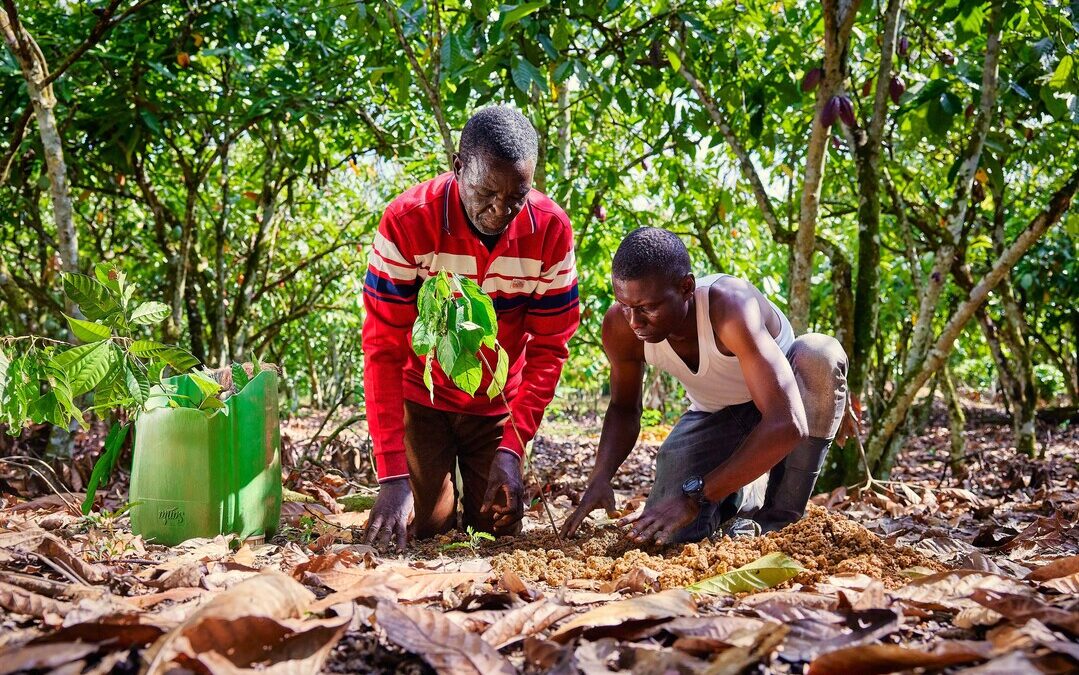Nestlé, ofi Launch Global Cocoa Agroforestry Project to Cut CO2 Emissions
Nestlé and ofi launch major agroforestry partnership to train cocoa farmers and cut carbon emissions across three countries.
Nestlé and Olam Food Ingredients, or ofi, have launched their largest joint agroforestry initiative aimed at reducing carbon emissions and deforestation across major cocoa-producing regions in Brazil, Côte d’Ivoire and Nigeria, the companies said on Monday.
The five-year partnership will train and support around 25,000 farmers in adopting agroforestry and crop residue management practices, part of a broader shift to regenerative agriculture.
The program targets the planting of 2.8 million trees and aims to cultivate over 72,000 hectares of agroforestry, with projected carbon savings of more than 1.5 million tonnes of CO₂ over the next 30 years.
The announcement marks a significant expansion of the companies’ 15-year collaboration on sustainable cocoa.
The initiative supports Nestlé’s Cocoa Plan and its 2050 net-zero emissions goal and aligns with ofi’s Cocoa Compass and broader Choices for Change sustainability strategy.
“People are at the heart of our climate actions,” said Darrell High, Cocoa plan manager at Nestlé. “By supporting a move towards a more regenerative food system, we can continue to build a more responsible cocoa supply chain and progress towards our shared climate goals.”
Training, Incentives and Technology to Support Climate-Smart Farming
Implementation is already underway, with farmers receiving training in climate-smart practices such as shade tree planting, composting cocoa pod husks, and compliance with sustainability regulations like the African Regional Sustainability Standard and the EU Deforestation Regulation.
Participants will also be eligible for financial incentives to encourage forest stewardship. Data on the initiative’s impact will be tracked using ofi’s digital monitoring tools, including its artificial intelligence-powered Carbon Stock Monitoring and AtSource Digital Footprint Calculator.
“We’re addressing climate challenges by putting farmers at the center of the solution,” said Andrew Brooks, global head of cocoa sustainability at ofi. “Together, we can support farmers in adapting to and mitigating climate change, and help strengthen the supply of sustainable cocoa.”
The cocoa industry faces growing pressure to meet increasing global demand while reducing its environmental footprint. Nestlé and ofi say this new partnership is a critical step in building a more sustainable and resilient cocoa supply chain.
Nirmal Menon
Related posts
Subscribe
Error: Contact form not found.


